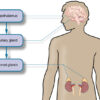Sedimentation Rate-Westergren
$29.50
CPT# 85652
Sedimentation Rate Test (Modified Westergren)
Test Code: 005215
Overview:
The Sedimentation Rate Test, commonly referred to as the Erythrocyte Sedimentation Rate (ESR) or Sed Rate, uses the Modified Westergren method to measure the rate at which red blood cells (erythrocytes) settle in a tube over a specified period. This test is a non-specific measure of inflammation in the body.
Purpose:
- Inflammation Detection: Helps detect the presence of inflammation caused by various conditions, including infections, cancers, and autoimmune diseases.
- Disease Monitoring: Useful for monitoring the activity of inflammatory diseases such as rheumatoid arthritis, polymyalgia rheumatica, and systemic lupus erythematosus (SLE).
- Diagnostic Support: Assists in the diagnosis of conditions where inflammation is a part of the disease processes, such as temporal arteritis and inflammatory bowel disease.
Patient Preparation:
- Fasting: No fasting is required before the test.
- Medications: Inform your healthcare provider about any medications you are taking, as some can affect the test results. Medications such as dextran, methyldopa, oral contraceptives, penicillamine, procainamide, theophylline, and vitamin A can increase sedimentation rates, while corticosteroids and aspirin can decrease them.
- Physical State: Normal physical activity does not need to be adjusted prior to the test.
Test Procedure:
- Blood Collection: A sample of your blood will be drawn from a vein, typically in your arm. The blood is then placed in a special tube to measure how quickly the red blood cells settle to the bottom.
- Duration: The sedimentation rate is measured over one hour.
Methodology:
- Modified Westergren Method: This is the standard method for measuring ESR and involves diluting the blood with a citrate solution in a specific ratio and measuring the rate of red blood cell descent in a vertically placed tube.
Limitations:
- Non-specific Test: While the ESR can be a useful indicator of inflammation, it does not pinpoint the cause of inflammation and is not specific to any particular disease.
- Factors Influencing Results: Several factors can influence ESR results, including age, gender, pregnancy, and anemia. The test’s sensitivity and specificity vary, and results should always be interpreted in conjunction with other clinical findings and diagnostic tests.
Additional Information:
- Follow-Up: Depending on the ESR results and associated clinical symptoms, further diagnostic testing may be recommended to identify the underlying cause of elevated inflammation.
- Comparison with CRP: ESR is often compared with C-reactive protein (CRP), another blood test that also measures inflammation. CRP is generally more sensitive to changes in inflammation status and can rise or fall more rapidly than ESR.
The Sed Rate Test provides valuable information about the presence and intensity of inflammation, helping guide further diagnostic and therapeutic decisions. It is a commonly used test in both diagnostic and follow-up settings for various inflammatory and autoimmune conditions.



